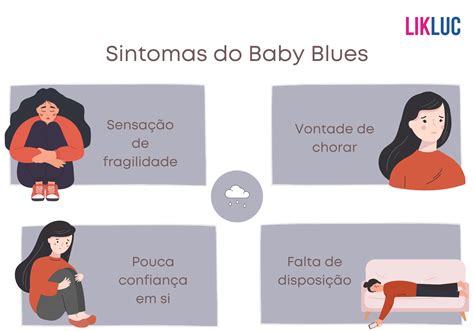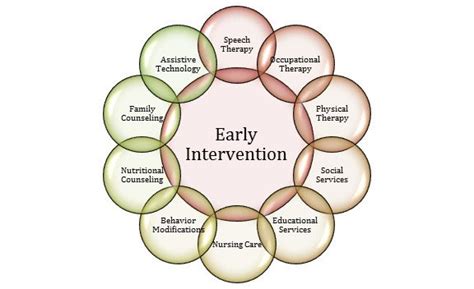Intro
Discover what baby blues are, a common postpartum condition causing mood swings, anxiety, and depression in new mothers, often linked to hormonal changes, emotional overwhelm, and parenting stress.
Having a new baby can be a life-changing experience, filled with emotions that range from overwhelming joy to deep sadness. For many new mothers, the period following childbirth is marked by feelings of anxiety, sadness, and uncertainty, commonly referred to as the "baby blues." This condition affects a significant number of women after giving birth and is considered a normal part of the postpartum experience. However, understanding the baby blues, its causes, symptoms, and how it differs from more serious conditions like postpartum depression, is crucial for providing the right support to new mothers.
The transition into motherhood is not just about caring for a newborn; it also involves significant physiological and psychological changes. Hormonal shifts, sleep deprivation, and the pressure to adapt to new responsibilities can all contribute to the development of the baby blues. It's essential for new mothers, their partners, and healthcare providers to recognize the signs of the baby blues and to differentiate it from other postpartum mental health conditions that may require more intensive care.
The experience of having a new baby is unique to each individual, and while some may glide through the postpartum period with ease, others may find it challenging to cope with their emotions and new responsibilities. The baby blues typically start within the first few days after childbirth and can last up to two weeks. Symptoms may include mood swings, crying spells, anxiety, and difficulty sleeping. These feelings are usually manageable and resolve on their own as the mother adjusts to her new role and the hormonal changes stabilize.
Understanding the Causes of Baby Blues

Understanding the causes of the baby blues is key to addressing the condition effectively. Several factors contribute to its development, including hormonal changes, psychological adjustments, and social pressures. After childbirth, the levels of estrogen and progesterone hormones drop significantly, which can affect mood and emotional well-being. Additionally, the responsibility of caring for a newborn, coupled with sleep deprivation and the societal expectation to be a perfect mother, can exacerbate feelings of anxiety and sadness.
Role of Hormonal Changes
Hormonal changes play a significant role in the development of the baby blues. The sudden drop in estrogen and progesterone levels after childbirth affects neurotransmitters in the brain that regulate mood, leading to feelings of sadness and anxiety. Understanding these hormonal shifts can help new mothers and their healthcare providers anticipate and manage the symptoms of the baby blues more effectively.Psychological and Social Factors
Psychological and social factors also contribute significantly to the baby blues. The transition to motherhood involves a significant adjustment period, during which new mothers must adapt to new roles and responsibilities. The pressure to be a perfect mother, societal expectations, and the lack of a support system can all exacerbate feelings of overwhelm and sadness. Furthermore, the physical changes and recovery from childbirth can affect a woman's self-esteem and body image, further contributing to the emotional challenges of the postpartum period.Symptoms of Baby Blues

Recognizing the symptoms of the baby blues is crucial for providing appropriate support and care. Common symptoms include mood swings, feeling overwhelmed, crying spells, anxiety, irritability, and difficulty sleeping. These symptoms are typically mild and resolve on their own within a couple of weeks after childbirth. However, it's essential to differentiate these symptoms from those of postpartum depression, which can be more severe and requires professional intervention.
Differentiating from Postpartum Depression
Differentiating the baby blues from postpartum depression (PPD) is critical. While the baby blues are generally considered a normal and transient condition, PPD is a more severe mental health condition that requires treatment. Symptoms of PPD can include intense feelings of sadness, hopelessness, and guilt, severe anxiety, and thoughts of harming oneself or the baby. Unlike the baby blues, PPD can interfere significantly with a woman's ability to care for herself and her baby, highlighting the need for early detection and intervention.Coping with Baby Blues

Coping with the baby blues involves a combination of self-care, social support, and, in some cases, professional help. New mothers can benefit from practical help with childcare and household chores, emotional support from partners, family, and friends, and self-care activities such as rest, healthy eating, and exercise. Joining a support group or talking to a healthcare provider can also provide valuable resources and reassurance during this challenging period.
Importance of Support Systems
The importance of support systems cannot be overstated. Having a strong network of family, friends, and peers can make a significant difference in a new mother's ability to cope with the baby blues. Support systems can provide emotional support, practical help, and a sense of community, all of which are crucial for navigating the challenges of the postpartum period.Professional Help When Needed
While the baby blues often resolve on their own, there are instances where professional help may be necessary. If symptoms persist beyond two weeks, are severe, or interfere with daily life, it may be indicative of a more serious condition like postpartum depression. In such cases, seeking help from a mental health professional is essential. Therapies such as cognitive-behavioral therapy (CBT) and interpersonal therapy (IPT), along with medication if necessary, can provide effective treatment and support.Prevention and Early Intervention

Prevention and early intervention are key to managing the baby blues and preventing more severe postpartum mental health conditions. Healthcare providers play a critical role in this process by screening for risk factors during pregnancy and the postpartum period, providing education on the baby blues and postpartum depression, and offering resources for support and treatment.
Screening for Risk Factors
Screening for risk factors is an essential component of prevention and early intervention. Women with a history of depression, anxiety, or previous postpartum mental health conditions are at a higher risk of developing the baby blues or postpartum depression. Identifying these risk factors early allows for targeted interventions and support, which can significantly improve outcomes.Education and Resources
Education and resources are also vital. Providing new mothers with information about the baby blues, postpartum depression, and where to seek help can empower them to recognize symptoms early and seek support when needed. Additionally, connecting them with local support groups, online resources, and mental health services can ensure they receive the care and support they need during the postpartum period.What are the primary symptoms of the baby blues?
+The primary symptoms of the baby blues include mood swings, feeling overwhelmed, crying spells, anxiety, irritability, and difficulty sleeping. These symptoms are typically mild and resolve on their own within a couple of weeks after childbirth.
How does the baby blues differ from postpartum depression?
+The baby blues and postpartum depression differ in severity and duration. The baby blues are generally considered a normal and transient condition, lasting up to two weeks, while postpartum depression is a more severe mental health condition that requires treatment and can last much longer.
What support systems are beneficial for coping with the baby blues?
+Beneficial support systems for coping with the baby blues include practical help with childcare and household chores, emotional support from partners, family, and friends, and self-care activities. Joining a support group or talking to a healthcare provider can also provide valuable resources and reassurance.
In conclusion, the baby blues are a common experience for many new mothers, characterized by feelings of sadness, anxiety, and overwhelm following childbirth. Understanding the causes, recognizing the symptoms, and knowing how to cope with the baby blues are essential for providing support and care to new mothers. By emphasizing the importance of support systems, early intervention, and professional help when needed, we can work towards ensuring that all new mothers receive the care and support they deserve during the postpartum period. We invite you to share your experiences, ask questions, and seek support in the comments below, and to share this article with anyone who may benefit from this information.
